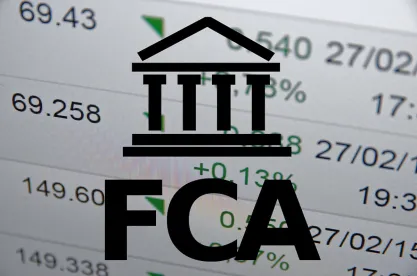On November 23, the UK’s Financial Conduct Authority (“FCA”) released its further consultation to require the administrator of LIBOR to publish a synthetic version of 1-, 3-, and 6-month U.S. dollar LIBOR settings for a temporary period until end-September 2024. Overnight and 12-month USD LIBOR settings will cease permanently at end-June 2023.
The FCA seeks views on its proposal to base synthetic USD LIBOR on CME’s Term SOFR rate plus the fixed ISDA spread for the corresponding LIBOR setting. The FCA emphasized that the synthetic rate would not be “representative” of market conditions that the original LIBOR settings were intended to measure.
The FCA also made clear that its primary purpose in requiring the publication of synthetic USD LIBOR is to facilitate an orderly transition of legacy contracts that are governed by UK or other non‑U.S. law and that have no realistic prospect of being amended by the time LIBOR is no longer published in its current form at end-June 2023.
The consultation includes an extensive discussion of the potential interaction between synthetic USD LIBOR and the U.S. Adjustable Interest Rate (LIBOR) Act. The FCA noted that the LIBOR Act covers legacy USD LIBOR contracts governed by U.S. law that contain no, or unworkable, fallbacks. On the other hand, it noted that contracts that have workable non-LIBOR fallbacks (such as the Prime Rate) are generally not covered by the LIBOR Act. Some contracts in this latter category (such as cash products and derivatives that adopted the fallback language published by the ARRC and ISDA, respectively) may trigger their non-LIBOR fallback rate when LIBOR is no longer representative. Synthetic USD LIBOR will not be representative. However, other contracts may fall back only when LIBOR is no longer available or published, in which case they might use a synthetic USD LIBOR setting for as long as it is published (and then fall back to their non-LIBOR rate), subject to interpretation of the contract language.
Essentially acknowledging that its jurisdiction is limited to “supervised entities” and contracts within the scope of the UK Benchmark Regulation, the FCA chose not to place restrictions on other entities’ use of synthetic LIBOR in contracts governed by U.S. law. In short, it is up to these contract parties to determine whether they are permitted to use a non-representative synthetic USD LIBOR rate that continues to be published after June 30, 2023.
Ultimately, the economic differences between a contract that uses synthetic USD LIBOR and a contract that is subject to the LIBOR Act should be mitigated by the fact that both are expected to be based on the CME Term SOFR plus the fixed ISDA spread adjustment. This result is driven by regulators’ desire to aim for “international consistency.” The SOFR-based rates applicable under the LIBOR Act will be determined by final rules expected to be published by the Federal Reserve shortly.
The deadline for feedback on the FCA consultation is January 6, 2023. The FCA’s final decision is expected to be announced in late Q1/early Q2 2023.




 />i
/>i
